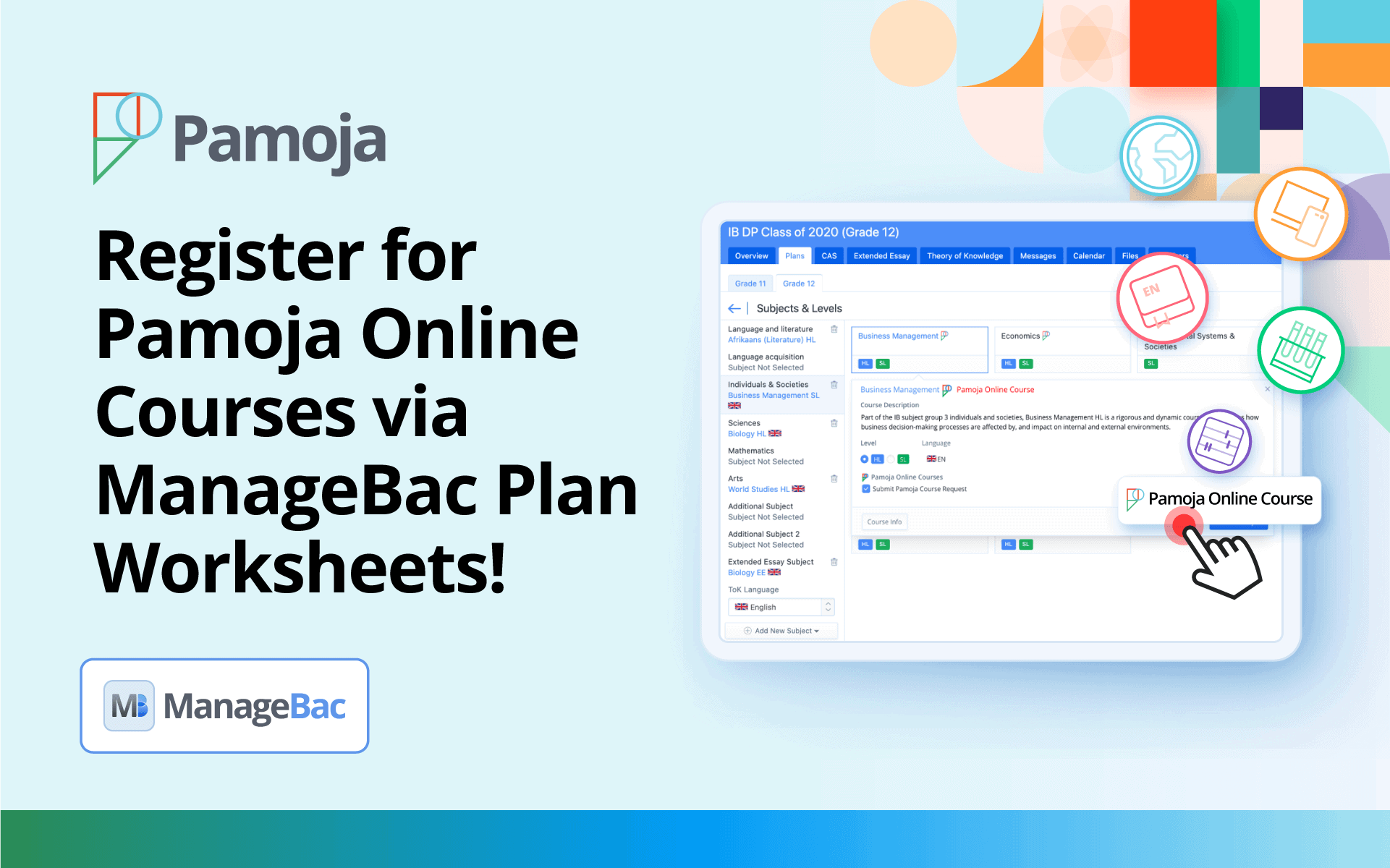The new academic year is here, and teachers all over the globe have been busy preparing their classrooms, lesson plans and assessment materials for a whole new cohort of students. But how do back to school preparations differ for those who teach online? We sat down with Sunil Nanwani, Head of Maths at Chatsworth International School in Singapore and Math SL online teacher at Pamoja, and asked him a few questions:
Hi Sunil! Please tell us about yourself.
I was first recruited by Pamoja in 2015 and underwent professional development training in the first few weeks of the academic year. However, I was allocated a class a year later in September 2016. My first online cohort was the M2018 Mathematics SL students and these students just finished their May 2018 exams just a few months ago. It was a small class with less than 20 students and these students were from all over the world. Many of them were new to the online environment at Pamoja.
I have been an IB teacher since 2009 and my first teaching stint was at an international school in Singapore. I have been teaching high school mathematics since 2012. I have also been involved in moderating Math HL Internal Assessments (IAs) for the IB since 2014. I have moderated and graded over 300 IAs!
My current role is Head of Department of Mathematics at Chatsworth International School in Singapore. I lead a team of five teachers across grades 6 through 12. I teach MYP and DP Mathematics.
Are there any benefits of working both face-to-face and online?
I feel fortunate that I have the full support of my face-to-face school that allows me to be involved with my teaching at Pamoja. Over the course of two years, I have learned and adapted new teaching methodologies in my both my face-to-face and online classrooms, and I have become a better teacher as a result. The technological training I receive at Pamoja has allowed me to enhance mathematical teaching in my face-to-face school. The professional development subject-specific training I receive at my face-to-face school helps me prepare my online students for the external IB exams in May. It is a symbiotic interaction between my role as a face-to-face teacher and an online Pamoja teacher.
What are the main differences in how you prepare for the new academic year for teaching online classes vs. teaching face-to-face classes?
One main notable and important difference is that the scope and sequence for the online Pamoja class is all laid out for the next two years. The units are pre-planned on a weekly basis and both summative and formative tasks are planned well in advance for the online teacher. Hence, the online teacher won’t have to worry about spending much time for lesson planning. The online teacher will have more time to engage with students answering questions via discussion forums and live conferences. In addition, the online teacher would still need to prepare the lesson in advance by being familiar with the course notes when preparing for the weekly live lesson.
As a face-to-face teacher, I would need to ensure my classroom is ready for the new academic year. Walls need to be painted, school policies including fire drills would need to prominently displayed in the classroom. The classroom will have colourful displays of student work. Much time is spent on preparing for lessons as it is not always the case where the scope and sequence is laid out. The teacher would need to create and design activities to engage students in their active learning. Both formative and summative tasks will have to designed by the teacher especially if the teacher is the only teacher in the section. This is quite common in a small school setting.
What is the main thing you are looking forward to in the upcoming academic year?
Looking forward to my next cohort of students who will be with me over the course of two years.
Do you have any advice for new teachers, whether they are working within a traditional classroom or online?
I have two new teachers that have joined the Mathematics Department at Chatsworth. It is important that the new teachers feel supported. Likewise, I was also very supported by experienced Pamoja teachers when I had my first section in 2016. I was very nervous for the first few weeks but settled in soon after. The Mathematics Department at Pamoja is very collaborative and has experienced teachers.
Do you have any advice for students starting an online class for the first time?
Seek help early from your subject teacher when you are in doubt. Make friends with the students from all over the world. Be organized, be timely in submitting tasks and assignments. In case you are falling behind, keep the communication clear and open with your subject teacher and your Site-based Coordinator so that you receive the necessary support to be successful in your IB DP online journey.
If you’re also an IB teacher interested in developing your professional skill set and becoming a Pamoja online teacher, keep an eye on our website in case of any vacancies.
Sign up to our monthly newsletter to keep up to date with all the latest Pamoja news.





